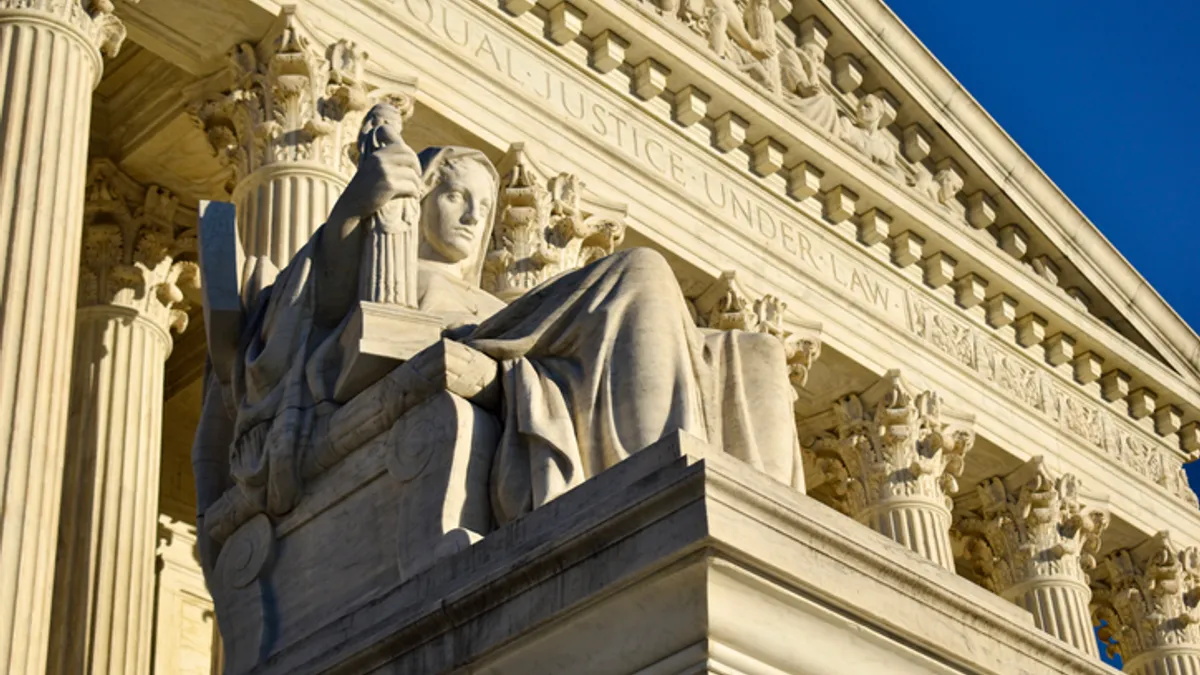The U.S. Supreme Court on Monday heard oral arguments for a case that could impact companies under the False Claims Act even if they don’t receive money from the federal government. Depending on how the court rules, the FCA could apply to companies that take advantage of a federal program regardless of whether the program is funded directly by the government.
Congress created the False Claims Act more than 150 years ago to penalize companies and individuals that defraud the federal government. It’s a law with real teeth: violators are subject to treble damages for the misuse of federal funds.
In the case, Wisconsin Bell v. US ex rel. Heath, justices looked at whether the misuse of federal funds extends to a program that the government created but that doesn’t use federal money. Instead, the program provides subsidies to private companies that are drawn from a fund that private companies pay into. Should the justices find in favor of a whistleblower, who claims Wisconsin Bell acted fraudulently against the government, FCA’s treble damages would apply even though Wisconsin Bell never received any federal money — arguably an expansion of FCA’s scope.
The dispute involves whether reimbursement requests submitted to the Federal Communications Commission’s E-rate telecommunications program for schools and libraries qualify as “claims” under the Act. The E-rate program helps keep telecommunications services affordable in economically disadvantaged areas.
Backed by the government, whistleblower Richard Heath contends that Wisconsin Bell overcharged schools and libraries by failing to charge them the lowest rate as part of the E-rate program.
But Wisconsin Bell argues that the False Claims Act was never intended to cover the private party funds at issue. Instead, the FCA limits claims to money that the government provides.
“The False Claims Act has always been trained on guarding the public [from a fiscal standpoint], but the government doesn’t provide the money for the E-rate program,” Wisconsin Bell’s attorney Allyson Ho told the justices. “This Court has said again and again that the False Claims Act is not an all-encompassing fraud statute.”
Justice Ketanji Brown Jackson noted, however, that the ultimate beneficiary of the money being collected through the E-rate program was the public. That led her to ask Ho, “Why isn’t the government collecting the money here for a public purpose?”
Ho countered that just having a government purpose was not enough because the federal government did not suffer harm. She noted that telecommunications providers – not the government – put money into the fund to finance the program.
But Heath’s attorney Tejinder Singh argued that Wisconsin Bell was trying to hide behind bookkeeping conventions. “The point is not exactly how did the money move through a bureaucracy,” said Singh. “The point is who is really making the money move, and it is the government.”
Justice Clarence Thomas seemed doubtful, however, in noting that the case involved private money from private parties to another private party. “It’s very difficult to see what the government’s financial stake is,” Thomas told Singh.
The Seventh Circuit Court of Appeals sided with the whistleblower, finding he had identified enough specific evidence to allow a reasonable jury to find Wisconsin Bell charged schools and libraries more than it charged similarly-situated customers.
How the Supreme Court resolves the case could affect other cases involving alleged fraud on government programs.










